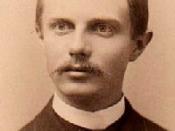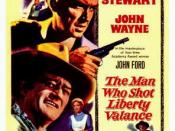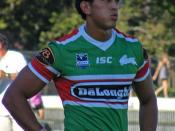(How American film maker's glorified the real truths of what the American West was really like. Based on the realistic "American frontier" essay by Fredrick Jackson Turner "The Significance of the Frontier in American History" in opposition with three films, "High Noon," "Stagecoach," and "the Man Who Shot Liberty Valance.")
The mystique of the frontier still exists, as does admiration for the individuals strong enough to leave behind them everything known, setting out for territory few even had seen. They left safe homes on the eastern coast, for whatever awaited them on the trail West. But now, their conquest and stories are colored with cultural embarrassment for the manner in which they survived and existed in the brutal wilderness.
The biggest problem of the West for America is that the myths, created by stories and through film, covered up many of the unpleasant truths. Directors of western films, such as John Ford, have taken a piece of the frontier, and glorified it with embellished facts for entertainment purposes.
Our identity is the result of what directors and writers have done, and has been created for us, shaping our self-image as Americans, not because they want us to believe its true but because we as Americans believe it. This idea reinforces the quote from the film The Man Who Shot Liberty Valance, "When people believe the legend, print the legend." Our society has looked upon film and literature as a reflection of our own history, and much has been confused with the truth.
This paper will discuss what Fredrick Jackson Turner described as the "real" American frontier in his essay "The Significance of the Frontier in American History," in relation to three films that mythologized the characters of the West. The films presented are High Noon, Stagecoach, and The...



Source List
it would be great to have a list of sources for this essay.
0 out of 0 people found this comment useful.